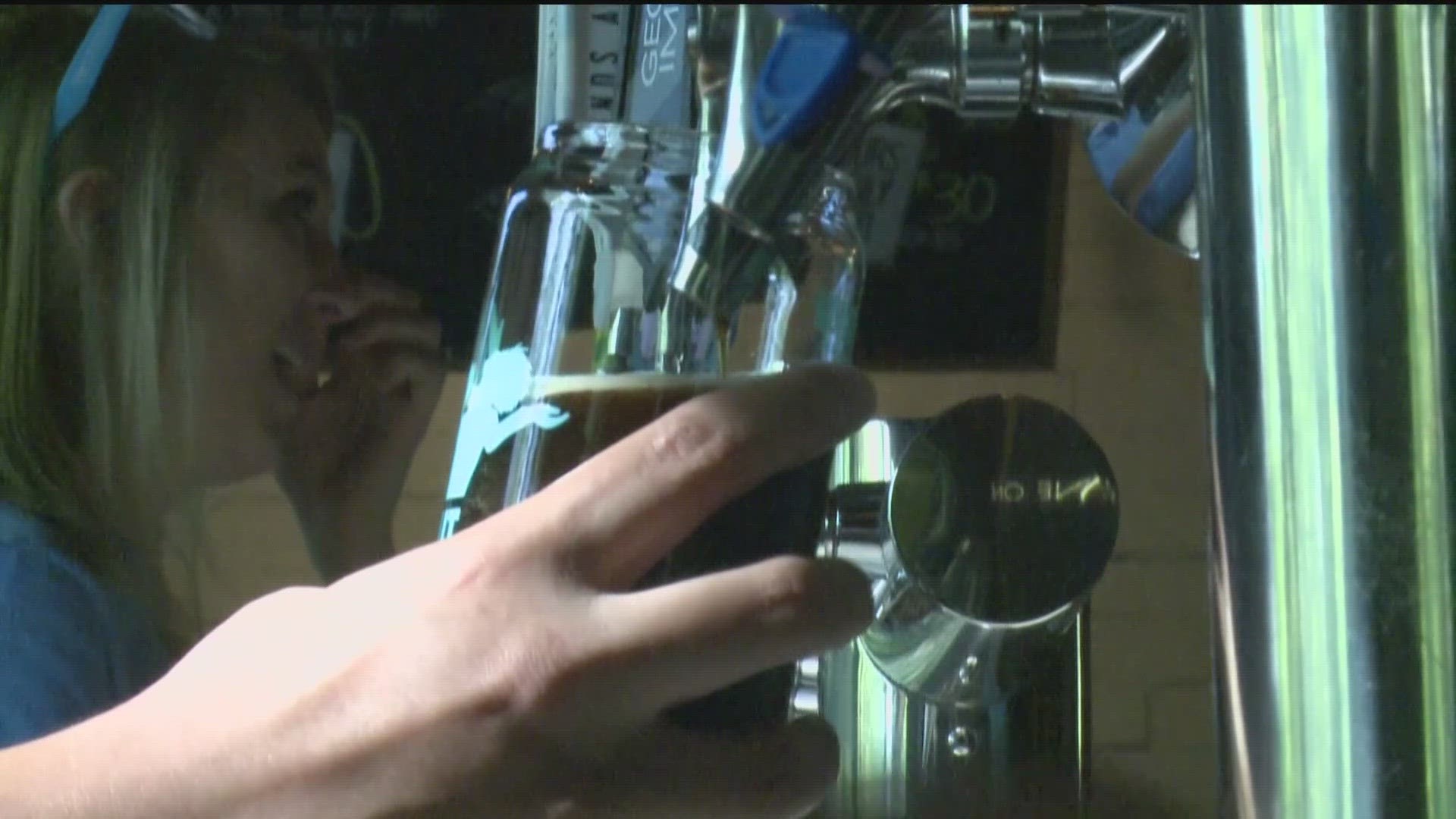ATLANTA — Once again, there is a brewing controversy, in more ways than one, at the State Capitol.
It has to do with the craft brewers who want a change in state law so they can bypass wholesalers and sell their beer directly to restaurants, bars, and stores.
The wholesalers are saying that that would hurt their own businesses.
The wholesalers — distributors — are fighting to keep their monopoly under state law to distribute beer and sell it to retail outlets.
Liz Massey of Two Tides Brewing Company in Savannah drove to the State Capitol Tuesday to be among the brewers lobbying lawmakers to pass Senate Bill 163, which, among other proposed changes in the law, would allow a craft brewer to sell beer to retailers in the same county where the brewery is.
“It would be life-changing,” Massey said. “Being able to just sell a little bit more beer per day would allow us to provide things like health insurance, retirement,” and, she said, double the number of her employees from 30 to 60 and pay them more.
Massey and others who attended the hearing on SB163 Tuesday afternoon in the Regulated Industries and Utilities Committee meeting told Senators that craft brewers are going out of business in Georgia partly because distributors, the wholesalers, are cutting into their slim profit margins.
“If I want to sell to a bar in Savannah next door to my brewery,” Massey said after the hearing, “my distributor has to pick it up, drive to Atlanta, four hours away, inventory it, and then drive four hours back to Savannah to drop it off at that bar. So it’s a waste of resources for the distributor and the brewery.”
Joseph Cortes of the Georgia Craft Breweries Guild told the committee that approval of the bill is crucial to the industry.
“Survival is absolutely on the table right now,” Cortes said.
But Martin Smith with the Georgia Beer Wholesalers Association said the craft brewing industry in Georgia is growing, not shrinking, and that letting them be their own distributors, even in a limited geographical area, could put wholesalers out of business.
“We’re not the big monsters; we’re small businesses across this state,” Smith told committee members. “There’s employees in every one of your districts that work for a distributor. And that’s who this affects. It is directly moving money from them and investments that they have, and to this industry (craft brewing), and it’s detrimental.”
The great beer debate will likely be up for a vote in the Senate committee by the end of the month.

